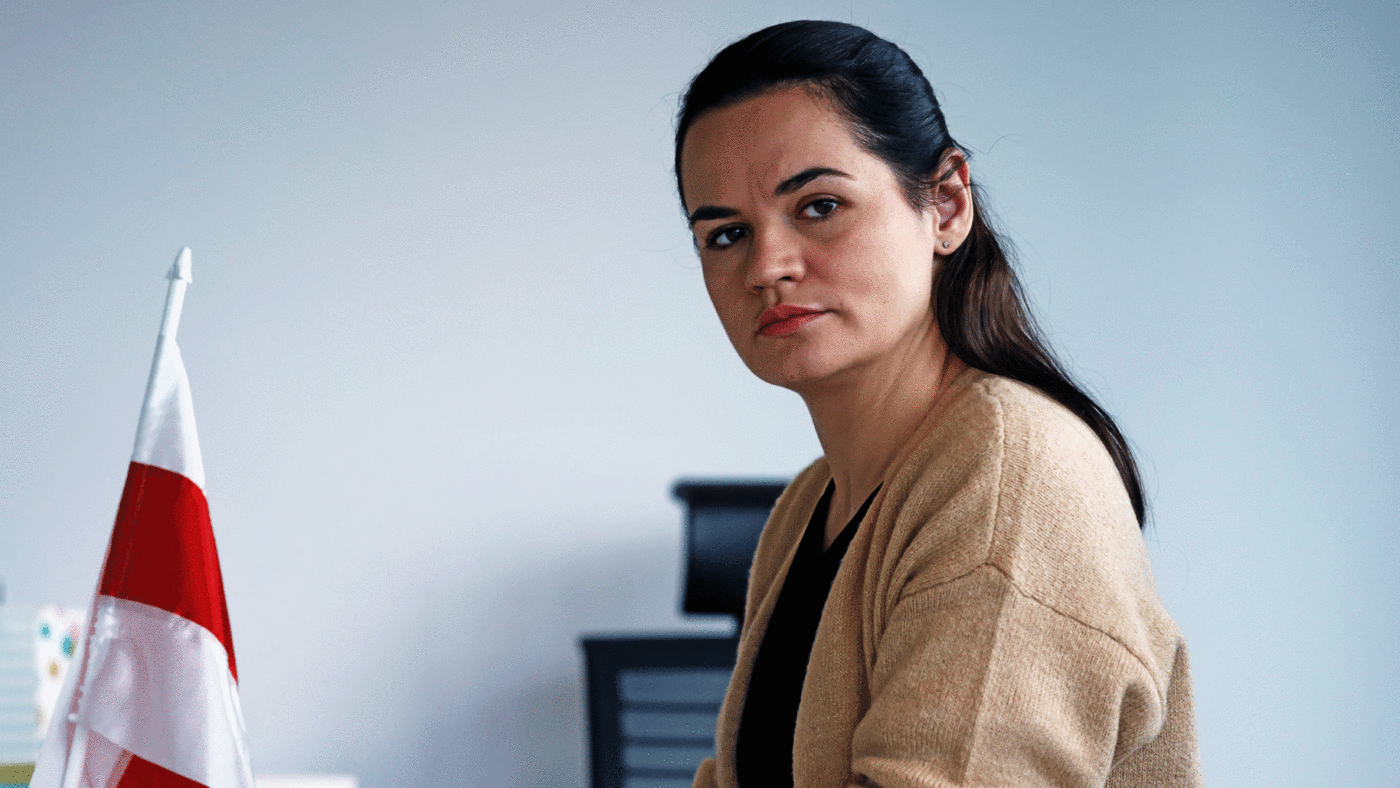“The people’s will can’t be broken,” says Svetlana Tikhanovskaya, the woman many recognise as the legitimate president of Belarus. I spoke to her via Zoom from Lithuania where she fled with her children after Alexander Lukashenko – ‘Europe’s last dictator’ – claimed victory in a Presidential election riddled with alleged electoral fraud.
Protesters have taken to the streets every day since the election. Hundreds have been arrested and beaten, and one man was shot dead. Others have died in mysterious circumstances. Tikhanovskaya’s own husband Sergei, a leading opposition figure, was imprisoned before the election, which prompted her to run in his place. Now, despite threats from Lukashenko’s officials and the brutal suppression of the protests, she’s continuing to lead the resistance.
“Of course people are getting tired and they are afraid, but after 90 days they keep coming out. There is no more space in the jails but people still come out on the streets,” she says. Police violence has escalated in recent weeks, with over 1000 people arrested across the country. “They beat people and brutally arrested people, including women,” Tikhanovskaya tells me. “The fact that the regime has resorted to these violent methods again shows that they’re in a panic, they understand that they can’t do anything except use violence to try and crush peaceful protesters.”
Some of the incidents have been caught on camera, including an old man with his arm in a cast being manhandled by police, a woman being arrested for walking with a pile of leaves in her hands, and a policeman kicking a man in the stomach. Recently police searched the home of iconic 73-year-old protester Nina Baginskaya, who’s seen at every big protest carrying her own hand-made white and red flags, the symbol of Belarusian independence. Another prominent woman, Tikhanovskaya’s close ally Maria Kolesnikova, was jailed after reportedly tearing up her passport to avoid being forcibly deported to Ukraine in September.
Lukashenko has ruled the country with an iron fist since 1994, and the most common slogan heard at the protests is simply: “Leave!”. Tikhanovskaya has promised to hold new elections if she is able to return. She is willing to consider letting Lukashenko leave the country rather than putting him on trial. “As a person I can’t forgive this violence, whether it’s towards my husband or the people who have been killed, raped or tortured. But if you look at the big picture and you know that when he goes we can build a new Belarus, it’s a question for discussion, giving him some kind of guarantee.”
Lukashenko has not spoken to Tikhanovskaya directly, despite once claiming that she “cried on his neck” and thanked him for helping her go to Lithuania. Last month he bizarrely met opposition activists in jail to discuss his proposed changes to the constitution with them. She thinks Lukashenko underestimates their determination: “He probably thought he could go there and offer them something in return for their freedom… but most these people have moral principles, they are not going to betray Belarus in return for their free time. Jail is no place for negotiations.”
He also let Tikhanovskaya speak on the phone to her husband – the only time she has been allowed to do so. Sergei told her to be “tougher” in her rhetoric, she says, as he knows she has a tendency to try to justify herself in her calls for action.
So far Vladimir Putin, the region’s key power broker, has refused to speak to her, and unofficial attempts to communicate with the Kremlin haven’t got anywhere, she says. However, she believes Putin has gone from actively supporting Lukashenko to playing a waiting game. The Belarusian opposition has proposed talks with Lukashenko and Russian government representatives mediated by the Organisation for Security and Co-operation in Europe – a mediation body with roots in the Cold War – but Lukashenko refuses to co-operate.
“He doesn’t know his own people, he is in an information vacuum,” says Tikhanovskaya. She acknowledges the support for her that has been expressed by Russian opposition leader Alexei Navalny, but she didn’t meet him during her recent visit to Berlin, where she had talks with Angela Merkel. “Mr. Navalny has his own particular situation that caused a big reaction. We don’t want to exacerbate the situation – it would be too obvious a gesture,” she says.
She says there will be a change of tactics in response to the latest police brutality, but that will be deliberated with the people of Belarus, because it will be up to them. And if Lukashenko does fall from power? “People are ready to do this, to put up with hardships at first,” Tikhanovskaya says. “With the support of other countries we can normalise this process very quickly because we are hardworking people. We have very intelligent people who just need to be given the opportunity to work, to build the country together.”
Click here to subscribe to our daily briefing – the best pieces from CapX and across the web.
CapX depends on the generosity of its readers. If you value what we do, please consider making a donation.


